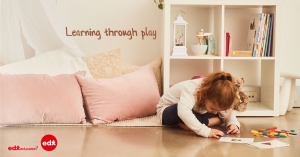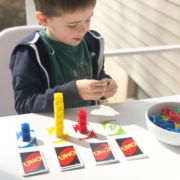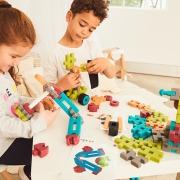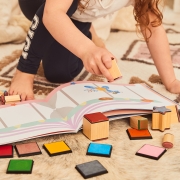Kelsey Komorowski Founder Komo, In Conversation with Edx Education
Episode – 23- Heather Welch, Edx Education, today we will be in conversation with Kelsey Komorowski
Kelsey founder Komo Consulting . Which transforms struggling students into thriving learners. With Strategies to drive academic achievement, well being and a general love of learning for a child.
Today we are chatting trends in education Founding Komo, home learning and so much more.
Here are the highlights from this episode:
{1:06} Introduction to Kelsey
{2:22} Two areas of the education system that Kelsey would like to see improved
{6:42} How Komo education works
{8:58} Working with children who have had an ADHD diagnosis or are on the autism spectrum
{12:01} If kids don’t feel confident they’re less likely to try new things
{18:36} Kelsey’s inspiration to start Komo education
{20:57} Getting the framework for academic management approved
{24:33} The importance of a daily routine for children
{27:19} How COVID has impacted education and children’s engagement levels
{29:00} How it’s hard to be motivated to do something that you don’t know how to do.
Heather Welch (00:01):
You’re listening to education experts with Edx education. Education is evolving. Join Heather Welch for edx education, chatting with teachers, psychologists, parents, authors, creators, and other tons of experts to keep up with the trends and what’s happening from around the globe. This podcast series, mediates education discusses, home learning, school readiness, being creatives changes in education, discussing what’s next hands-on learning. Or as we like to say, learning through play,
Hi everyone. I’m Heather Welch from edx education. And today we’ll be in conversation with Kelsey Komorowski. Kelsey is the founder of Komo consulting, which transforms struggling students into thriving learners, with strategies to drive academic achievement and success. Also looking at the well-being and general love of learning for a child today, we are chatting about trends in education found in Como home learning and so much more welcome Kelsey. It’s wonderful. You can join us today. Can you introduce yourself to our listeners and tell them about your passion for education?
Kelsey Komorowski (01:06):
Absolutely. Thank you so much, Heather. It’s a pleasure to be here. Hello everyone. My name is Kelsey Komorowski and my passion for education stems from its power to transform, to take someone who is struggling, who feels limited or frustrated, or maybe even sad. And, and to transform them into a confident person, you know, confident not only in their intrinsic value as a human, but in their ability to live their dream life. And importantly, somebody who has the skills to actually do so and to make the impact that they truly want on the world really with education too.
I think the multiple levels of impact are just fascinating, you know, looking at the individual impact where it’s transforming somebody into being that more confident, capable thinker, but then also at a family level and at a community level, and then broadening out into society as a whole. I think when, you know, education, when it’s done right, it builds better thinkers. And I really believe that is key to creating a healthier and wealthier and more compassionate society.
Improving the education system
Heather Welch (02:05):
I couldn’t agree more with that. Actually do, would love to know is if you look at the education system now I know that we’re also a lot of stuff, home schooling or virtual learning. It’s a little bit of an unconventional school year, but what are the two areas that you’d like to see improved in our current education system?
Kelsey Komorowski (02:22):
That’s such a great question. And to pick two was a, it’s a challenge, but the, the first big one that comes to mind, and this is definitely our niche would be to introduce more explicit and systematic skill building through schoolwork into the curriculum. So, you know, every, every homework assignment, every test that is assigned, it is an opportunity for our kids to practice critical thinking, communication, time management, executive functioning, metacognition, to really deepen their understanding of what these skill sets are and what they look like in practice.
In most traditional education systems, including that are really outstanding, you know, there’s, there’s so many incredible educators out there and, and people pouring their hearts and souls into making our schools as amazing as possible. There just generally is not the bandwidth to go beyond curriculum delivery. And actually, Heather, if it’s okay with you, I can actually outline what this means a bit more practically.
Kelsey Komorowski (03:14):
Yeah, absolutely. Okay. So generally there, there are two ways that kids do school. Okay. And I think a lot of the parents here might resonate with one camp over the other, essentially camp. One is how most students do school and they very much do school by reacting to work that has been assigned to them. So it’s looking at like, okay, I have this math or this English, and it’s very much about, let’s go through the motions to get it off my plate.
Right. It’s very passive. And that is the, at least in, again, my opinion in my experience, one of the greatest flaws currently with our education system, what we want to see as a shift into what we call camp to where it sat, more kids are actively managing their coursework. They’re aware of the moving pieces within, in between their classes. They have strategies to manage that coursework. And then importantly, when they sit down to do their work, it’s not just about the doing their flipped on, they’re actually engaged and aware of this skills they’re using to process and understand and retain, and eventually apply the knowledge from their different subjects.
Changing the way we learn
Heather Welch (04:13):
That’s amazing. Do you find now that camp too, could you see that’s where we’re moving to? Well, hopefully with home learning, because I know children depends on how it’s been. We’ve done three lockdowns, we’re on number three, it’s been delivered differently. Three times. The first time was lived more of a project based. So he could actually do it within his own time, manage his own time and then get the work done. And actually he did very well. He thrived in that. However, there are a lot of complaints from schools and parents working moms, working parents saying, we need you to be at home doing school.
So their version was redo the school day. Exactly how it is at home on zoom. So there, we have seven hours of zoom a day and he’s coping with that situation. Whereas he thrives on, you know, I, I would say that as camp too, really, he gets to manage his own time. So, you know, I suppose this pandemic has thrown us into a different situation. Would you see that this is maybe somewhere that some people have done really well?
Kelsey Komorowski (05:14):
Yeah, absolutely. Heather, I love so much what you’ve outlined there. And also when you mentioned seven hours of zoom, you should have seen my face there that’s, it’s a lot, it’s, it’s untenable for most learners, right. To have that. So what, what we found when COVID first hit, it was interesting because essentially COVID highlighted for a lot of families. What, what we’ve known for a lot of years, again, our, our niche is pretty specific. It’s, it’s, skill-building through schoolwork. So when students found themselves at home, a lot of parents that I talked to were like, you know, my kid’s been doing fine. They’ve been getting good grades.
And they were shocked at their kids, you know, essential, inability. They didn’t know what to do with that more self-directed, you know, needing to be more self-motivated without having the teacher in the classroom. So it really did highlight the, to actively and explicitly build out the skillsets and the mindsets and the ability to self motivate in order to, you know, engage in and thrive in that learning environment.
Kelsey Komorowski (06:07):
So for sure, I think after the initial shock wore off and families started to take more of that. Skills-based, you know, learner driven, helping build out their autonomy with learning as opposed to, you know, more processing passively of curriculum. That’s been delivered by a teacher a lot. Yeah, it is. I am hopeful. A lot of families are turning that way. I think it would be really great to be able to see more of a, a curricular, you know, at an institutional level to also go that way. And of course there’s a lot of different constraints. Every school district is different. But definitely at the family level, we for sure have seen that.
Heather Welch (06:40):
So you were working with a lot of families or are you working with school districts? How does Como work in general?
Kelsey Komorowski (06:45):
Great questions. So we work mostly with families over when we first started back in, Oh my gosh, 2013, we partnered initially our whole drive was my whole drive at least was, let’s get clear on why students stress and struggle with school. What are the barriers to learning and achievement? How can we remove them for learners so that they can truly learn and achieve to their potential? So over the years, we we’ve done a lot of research and development with policymakers, with PhDs, with, with principals, with teachers, we’ve worked very closely with different stakeholders in education to, to come to a holistic understanding of those challenges.
And what we found really is that it does boil down to a skills deficit. So when we, when we learned this, we really channeled it to working with families to be totally honest. Heather, I did try initially, cause I worked with the ministry of education with government and with a bunch of different school districts before I launched Como.
Kelsey Komorowski (07:37):
And it’s just different when working with government or working with schools, there’s tends to be a lot of red tape and a lot of great intent, but it’s kind of hard, you know, there’s a lot of bureaucracy. So what I found was the whole, that sounds great. You know, it’s going to take eight months to design and deliver. Whereas with families, we could go right into the home and sit down and get started that day. We really started working with families and, and kind of bridging that gap between classroom teaching and at-home learning. So up until, up until very recently, up until COVID hit, really, we were pretty much working exclusively with families that has been our primary audience, again, collaborating with other stakeholders in the students network.
For example, if one of our families, you know, if the student had a life coach or, you know, had a counselor or a therapist or things like that, we’ve partnered with those other actors to, you know, to be a part of their students success network. Then when COVID had just recently, we we’ve had a lot of inquiries from teachers, right? Teachers are tired. Teachers are having a lot of burnout and, you know, wondering how can I reconnect and reengage with our kids and the curriculum that we’ve developed. You know, it really takes the onus off of teaching and recenters it to learning. So we’ve recently launched a licensing model to allow educators to bring our framework into their classroom and, and work it with their own kids.
Working with children who have had an ADHD diagnosis or are on the autism spectrum
Heather Welch (08:56):
That was fantastic. I suppose this is a question. Do you find families are coming to you just say, for example, we’ve had early diagnosis of ADHD or anything, so it’s, and then the children have actually switched off from learning. You find this is the case sometimes. And then you’ve got to go back to see what the root problem was and work from there.
Kelsey Komorowski (09:15):
Yes. Oh, Heather, I love that question so much. And it’s actually, I would venture to say close to half of the families that we talk to, they come to us asking specifically, you know, can you help a student with ADHD? Can you help a student on the autism spectrum? My child is hearing impaired. There’s a lot of specific learning differences that families come to us about. This is a cool part about our research and what we’ve found. We have found that regardless of the learner profile, all students can learn how to learn. All students can learn how to manage and engage in their schoolwork. And at the end of the day, that’s what we found. At least student and learning success boils down to that. Can our kids manage their work?
Are they able to engage in it in a meaningful way on their own terms? So it’s really amazing to be able to tell our families now, Hey, your son has ADHD or your son is on the autism spectrum. That’s okay. That might affect the pace at which you know, they’re learning to learn, but they can still do it. And they can still see incredible outcomes. And actually how there were lots of last year, we’re on the registry of autism service providers, for example, were subsidized by different government bodies and recognition of our model, enabling all students, regardless of learner profile to truly learn how to thrive.
Heather Welch (10:27):
That’s fantastic. Is it mainly in Canada or now realistically it would be global, I would say
Kelsey Komorowski (10:33):
Yeah, so our, our curriculum, but like we have a self pace. Do it yourself curriculum that is available globally. The families that we work with, you know, not in person anymore, virtually are mostly in North America. Interestingly I’m based in Canada, but most of our families are actually in the United States, but we do work with families across North. Right.
Heather Welch (10:51):
Is it a homeschooling? Do you find that you’ve got a big buildup of people that are homeschooling or it’s actually students that are going to school and having the issues there?
Kelsey Komorowski (11:00):
Oh, it’s such a mix. And, and over the last year, since COVID hit, it’s been fascinating to see the diversity, you know, of what schools look like these days. We have some students that have not been in a classroom since March of last year. Some students who have barely been outside the classroom. We have those who kind of switch between online or hybrid. And then honestly, Heather and I, I think, I think a lot of our parents might resonate with this. I know a lot of parents that their kids are doing hybrid or online, but they feel like it’s a homeschool situation.
Heather Welch (11:32):
Yeah. They had their home bubbles. When you talk about critical thinking, you know, we work a lot with early childhood development and things like that, but we always say that critical thinking starts in the early years. What would you say to that?
Kelsey Komorowski (11:45):
Absolutely. Does, you know, the earlier the better, I think there’s two things there. You know, when we talk about why does it matter that we have confident thinker just to be super clear, like confidence underpins effort and it really underpins our kids’ belief in their ability to succeed. Right? So if we don’t have confidence, we have kids who are a lot less likely to try things. And then even if they do try things, if they don’t have, you know, a real core confidence, that’s unshakable, that’s intrinsic.
If they fail or if they fall down or if they face challenges, you know, that resilience generally isn’t as powerful. So that confidence piece is key. And then the ability to think critically, to actively engage in the world around us and, you know, really move through our lives, questioning and, and engaging and active that for all of our kids. Like that is the key, at least from what I’ve seen for each student, each child to introspect to get to know their true selves, their individual strengths and values and passions. And that is their ticket, right? To a future where they’re really happy and, and reaching their potential and making the greatest impact that they can.
Heather Welch (12:54):
Absolutely. That’s exactly where they’re going to go. If they find, if they can fulfill their passion, they’ll be able to find something that they can work for. And it sounds like you’ve found your passion through education. Absolutely. And been able to build this framework with a lot of research and Como consulting, which sounds like it’s doing absolutely amazing work building lifelong learners, or even helping students that have been struggling in the traditional system. And get me, tell me if I’m wrong here to become lifelong learners,
Kelsey Komorowski (13:21):
Absolutely spot on Heather. You know what I would even add, because this is something that we, we found out relatively recently, you know, for the first few years of our work, we were very much working with students, right. Of course, talking with parents, but the service delivery, the skill building was much, you know, with the students a couple of years ago, we actually invited parents to participate in this skill building and in our programs alongside their kids. It was, I wasn’t quite sure what to expect, but the impact was phenomenal.
We found that, you know, household dynamics and having parents who are also confident learners who have intellectual humility, who can build a shared vocabulary around skill building and lifelong learning in their home, that the kids have their skill building and confidence drastically accelerated as a result. So it really is a family model. And we see the very best outcomes when parents and students are both learning how to learn and tapping into that joy for lifelong learning.
Heather Welch (14:15):
I’m not surprised by that. We quote here in the UK, I’m not sure about in the USA and Canada, I have to look it up, but we quote, the students only spend a fifth of their life at school take on average or their waking hours. If you think of it like that, actually you are their main facilitator of their learning. So it is actually really important to involve, as you’re saying, all stakeholders, including the parents in that situation. I’m not surprised hearing that at all, to be honest, I think that’s the thing that’s come in in the UK is this, that parents have to be more involved in the children’s learning.
Kelsey Komorowski (14:48):
Yeah, absolutely. And it’s, I so much, it’s so interesting to see kind of these global trends emerging from, from COVID and from what we’re hearing, what we see almost as the most important for the parental involvement and Heather, I can’t speak to you or your audience specifically, but most parents I talk to, they feel, especially our moms.
They feel like they really need to model out having it together and that they’re, they’re good with their time and that they’re good with their achievement and that, you know, they’re doing their lives quote unquote very efficiently each day. And what we found is like to model out a Hey, you know, for, to talk to your kids about, I really struggled with sticking to my calendar today, or, Hey, I have this problem. How can we get resourceful? And to really model out the kind of, you know, murkier bits when it comes to problem solving and when it comes to overcoming challenges has been huge.
Kelsey Komorowski (15:37):
So sharing this project that, that communication and sharing it together as a family or even them seeing that actually, well, you know, my children’s still think I’m perfect. I don’t think so. They still willing to what they’re about 16, normally kidding. Kelsey, I’ve got two little boys one’s three, a month, 10 to 10 year olds. The one that’s he loves learning. He loves to be busy. He loves to think. And actually he challenges me at times too. So I remember this is only something very small. I used to have this same with my children. And I always say to them, you know, to try food or to try saying different, cause we lived in all these amazing countries would go to these wet markets and I’d be like, Oh, you never know if you don’t try it once. You never know if you like it.
Virtual Learning
Heather Welch (16:20):
So I remember where to wet market once. And there was frogs being called and my son and his tea to drink. The spawn is actually the delicacy. And my son turned around to me and just said, mom, if you never try it, you never know if you’re going to like it. And it was that moment where you’re like, Oh no, I can’t, you know, I just did not want to try it, but you have to, I’ve been saying it to him for so many years. I had to actually do it back to him.
So I was like, well, he used exactly what I had always been saying back to me. But now it is really interesting. Have you found in Canada though during virtual learning, there is a big divide in education. And what has been given to students around, like from private, independent, international? Do you call it government schools or how do you refer to it as district schools? I suppose.
Kelsey Komorowski (17:09):
Yeah. Public schooling. First of all, Heather, that’s amazing about what you shared about your side of that’s so fantastic. All cycle. Yeah, there is. There’s been a big difference, especially, I’d say the first three to six months. It was very evident. You know, a lot of the, and I wouldn’t even say just for Canada, because again, a lot of our families are in the United States schools that had an existing digital infrastructure.
The transition was a lot more seamless, right. For teachers to kind of figure out how to do the zoom delivery, things like that. And for, and to just shift over to a, you know, a virtual classroom, whereas other schools, you know, often in lower income communities, they don’t have those resources and they didn’t really have a lot guidance or support. So a lot of students were kind of out of school for a couple of weeks or longer while they tried to figure it out.
So there’s definitely a huge gap. And, and honestly, that’s one of the reasons that I’m so driven to spread skill building as an essential part of any school curriculum, because the variables of, you know, quality of digital infrastructure or quality of teachers or of resources available, there are so many variables, right? That given to shaping the learning environment that can change that are out of our control. The one thing that is in our control is for each student to have that skill set for themselves, that they can rely on, right. To make the very most out of whatever resources are at their disposal.
Inspiration to start Komo education
Heather Welch (18:31):
Kelsey, I know that you’re in education for many years. I know that you’re at 16 years with the ministry of education, what was your inspiration to start Como education?
Kelsey Komorowski (18:40):
Yeah, no worries. I’m laughing. If I’m being honest, it would be frustration.
Heather Welch (18:45):
No, I think that’s quite fine.
Kelsey Komorowski (18:50):
I’ll just be very transparent.
Kelsey Komorowski (18:52):
I, I was at the, I was working in the student achievement division with the ministry of education and I was working with incredible people. I mean really people who are doing incredible work to improve our education system, improve educational outcomes for all populations, right. Including those that have traditionally lower, you know, records of achievement. But what I found and I kind of alluded to this earlier, the red tape and the bureaucracy was to me, especially just fresh out of grad school. It was very shocking, I suppose, would be the word.
I just, I became a bit disenchanted with seeing and my job, especially I was literally collecting and analyzing student achievement data, right. And looking at what initiatives helped bridge achievement gaps and learning about all of these places and spaces that we can improve in, but also knowing this isn’t going to happen for months or years, right.
Kelsey Komorowski (19:39):
To implement so that it actually trickles down to every classroom. And so what I ended up doing, like I’d always tutored intensively that that had been something that I’ve just always done. So I’ve always been very good at school. And that’s when I went back, I thought I’m very frustrated with not being able to make an impact directly in my capacity with the government. Maybe I’ll just put out, you know, I’ll start tutoring again, just to alleviate some of that frustration and to see positive impact and to help kids feel good. You know, basically within a few weeks of doing that, I had a, I had a wait list and a lot of people calling, asking about asking about my tutoring, because the way I tutor, I learned quite quickly as it is not normal.
Right. I really focus on learning and not about teaching or, or traditional tutoring. So I just eventually was like, well, there’s clearly something that’s working here. People are really responding and seeking out what I have to offer and kind of the methods and models that I’m using. So that was it. I didn’t really set out to start a company. I just thought I’m, I’m loving this. It’s so fulfilling. And I, much to everyone in my life advising against you, can’t leave a stable government job.
Kelsey Komorowski (20:43):
Know that’s crazy. You don’t have anything else lined up. I was like, well, this is, this seems to be
Kelsey Komorowski (20:48):
Something, yeah. You know what? I’m going to give this a go though. And that was, that was a lot of years ago. And you know, I’ve never looked back and now, now I’m talking with you and getting to do what we do today.
Komo Framework Development
Heather Welch (20:57):
When did you actually get the framework approved and put that in place? You obviously built it. You built it over a period of time, last 10 years or eight years, I suppose. But when did you get the framework approved and put,
Kelsey Komorowski (21:08):
We launched the framework in its current form in 2018, it’s undergone a couple, you know, revisions and iterations. But 2018 was the big year for, for the fan as we call it the framework for academic management. That’s just that refers to our digital platform for skill building through schoolwork. So yeah, we’re going into our third or third year with that. And we’ve actually just recently upgraded to a brand new platform and we’re creating an educator portal for it. So it’s, it’s definitely, we’re continually improving it and really making sure that it’s responding to our families needs.
Heather Welch (21:40):
If people want to get in touch with you for Komo? Would they, can they do it in two ways? Can they do it as a consultant consulting or, and then can they trial the program? How does it work? Yeah,
Kelsey Komorowski (21:52):
Sure. So we offer, we have a few things. We offer a free one-on-one learning and achievement audit. We do holds anywhere from 10 to 20 spaces per week. They tend to fill up pretty quickly, but if families are interested, you can book that it’s Como consulting.com backslash get started now and get started. Now there’s a hyphen get hyphen started hyphen now, and that outlines, it’s a family call. And we really do a deep dive into the family’s situation into the child’s situation, with where they’re at with school and learning, where would they like to be?
You know, where mom and dad at, and we get clear on, you know, first of all, can we help? Right. We’re pretty niche and we can’t help all families if we can help. What could that look like? And then from there we do have, we have three different programs on offer. So we would talk through, you know, if they want help, what, what would be the best fit for their family based on their needs and goals.
Heather Welch (22:41):
So many parents in the USA, the UK, we’re all around the world. And actually I know that Victoria in Australia, they’re going back to lock down as well. So do you have like three top things for parents that who are struggling to get their childrens to complete this, their schoolwork? Any strategies? Anything? Just three top tips. Yeah.
Kelsey Komorowski (23:00):
Oh my gosh. For sure. So I think the number one thing that I really want to remind all of our parents is that you’re not responsible for teaching your kids. I think that’s one of the biggest shifts that we’ve seen have the biggest success, not just in terms of actually helping to optimize learning outcomes in the home, but also really with, you know, facilitating more positive dynamics around school and learning. You know, if moms, I, sorry, it’s parents, I know it’s moms and dads
And you’re most of the people we speak with are moms. But if parents, you know,
If parents feel the pressure and obligation to teach their kids when they’re not, you know, teachers, or even honestly, there are a lot of the people I speak with our teachers and they’re like, I’m a teacher. Why can’t I teach my kid? I would really shift to focusing on supporting their learning, right? So not necessarily about explaining their content and making sure you know, that that delivery is there, but more of that coaching and asking questions and helping their student again, engage in their, learning more on their own terms.
There’s a lot of flexibility to do that. And we do on our, on our site actually, Heather, I’m not meaning to plug, but we have a lot of blog posts and articles with more details on that. If that’s of interest,
Heather Welch (24:08):
People are looking for help and they’re looking for advice and they like to look at, you know, three or four different sources, primary, secondary sources. So absolutely help tips and advice is always the best.
Children taking responsibility for their learning
Kelsey Komorowski(24:20):
Yeah, fantastic. So that, that would be number one, as far as focused on helping them learn as opposed to putting the responsibility on yourself, to teach. And then Heather, the other thing I’ll share, this is the closest thing to a magic solution that we found with our kids. We want them to have a daily routine, right? And we want the daily routine to be as simple as possible. And again, this boils down to, with, with school and learning, can they manage their work? Can they engage in their work?
So we have three steps. It’s called check plan. Do we have students in grade seven who have implemented this with no issue? We have students in second, third year university following this. So it really, it works no matter what so long as the student puts in the work where they’re checking what they have do each day.
Kelsey Komorowski (25:03):
So checking each class, what have I had assigned? Is it in, what do I have coming up? Do I have it? And then moving on to, is it planned out? So checking their work, planning out the completion of all of their work. So really identifying the days and times where they’re going to get it done, plugging it into their calendar or agenda, whatever they’re using and then actually doing the work. If they’re checking and planning and doing each day, nothing falls through the cracks and they’re going to feel good. They’re going to feel in control. They’re going to feel more confident. And mom and dad also are going to feel good and more in control and more confident.
Heather Welch (25:35):
It sounds sounds the way that we run our own businesses, working from home as well. Sometimes you have to do that year is checking your is planning and you’ve got to plan your time and everything. So as Kelsey, another question is So how young are the children generally for Komo framework?
Kelsey Komorowski (25:52):
Yeah, so it’s middle school and above for us, we’ve had inquiries to work with elementary aged students. We’ve not done that yet. It’s definitely on something that we would love to, to explore more. But we found that with the type of work we’re doing with, with skill building, there does need to be an, a maturity and an emotional intelligence in order for our kids to be able to engage in the rigor of the work that we’re doing. So we’ve tested successfully with students as young as grade six. And then of course, all the way up through high school and university, most of our students tend to be high school and university that we work with personally.
And then for our middle schoolers, a lot of our parents who are still in actually other, you mentioned those, you know, your, your boys still does think you’re perfect, which is amazing for a lot of our younger learners where there’s not so much tension around school, or especially if it’s homeschooled, parents are taking the curriculum, the do it yourself curriculum and just incorporating it into their day to day. So it’s not, you know, myself and my team working directly with the family, but the parents are taking the curriculum to take the guesswork out of well, how do I set my kids up to learn how to learn and going from there?
Heather Welch (26:57):
Fantastic. They’re trying, they’re putting together their own bubble or their own, their own area to do. Do you find that a lot of safe example, middle school, middle school too. It’s different. Say I could say secondary school to middle school, to senior school. I disengaged do due to, I suppose, boredom or just not being interested, not having that intrinsic motivation that you’re talking about.
How COVID has impacted education and children’s engagement levels
Kelsey Komorowski (27:19):
Absolutely. Yeah. And, and what we’ve seen is kind of into three levels of disengagement and, and boredom on the one hand, you know, and I, I, I really like to remind our kids and parents of this because it’s easy to feel down on ourselves. Right. But like COVID, the pandemic has impacted us all, obviously in, in massive ways. Like we don’t even at this point understand really the impact that it’s had on our kids. So to have, you know, grace and compassion with respect to there’s a lot going on, that we don’t even yet know about the impact.
I know a lot of our students have had greater mental health challenges, for example, as a result of this. So I just like to point that out, you know, as that is there, that exists. And then looking at the next piece of do they know how to do their work and other, we touched on this earlier, but for a lot of students, their motivation or their engagement would come from the social, emotional dynamics of being at school.
Kelsey Komorowski (28:16):
Right. They respond well to being around their friends or around their teachers. And when it’s just them, that internal ability to self motivate or to do their work isn’t there. So I think it’s really important to look at why isn’t it there, if it’s a case with like mental health challenges, as opposed to a case. And this is again where, where we find with a lot of our students that they don’t know how to do their work.
They can get it done reactively to get it off their plate. But when it comes to actually, you know, how do you study? How do you most kids think studying is just reading stuff through. It’s not right. How do you read most kids? Look at me like I have three heads. What do you mean? I sit down and read. That’s not how you do reading comprehension, right?
Kelsey Komorowski (28:53):
So it’s really hard. I guess this is the takeaway. It’s really hard to be motivated to do something that you don’t know how to do. It’s no different with adults. Like if I don’t know how to do something that I know I have to do, but it makes me feel bad because I don’t know how to do it. I’m not going to want to do it. I think back to the first time I did my taxes, I postponed and I procrastinated for like ages, you know? So we want to make sure that they know how to engage in their work properly because otherwise there’s going to be a lot of procrastination and they’re going to feel de-motivated
Mental Health and Well being for Children
Heather Welch (29:22):
Especially the social aspect as well. I think that’s one of the main things that’s going to happen with the pandemic. This one of the main things they’re talking about at the moment is the mental, mental health and wellbeing for children as being school readiness and some children not even being in the classroom and finish the first year. So it’s been a really interesting year for everyone, but Kelsey, I, it’s amazing what you’re doing with coma consulting to create, to develop lifelong learners, which is what we need because you know, whether they think they say something like 60% of the jobs that are available now won’t be available for our children when they grow up.
So it’d be amazing to have critical thinking, problem solving all of that. That’s how they’re going to go against all the AI and all the robotics and all these different jobs that are coming up. They’re going to be our lifelong learners, which is amazing. And I suppose that’s what you are, Kelsey life, I’m learning the sounds of it. So how can our listeners hear more about Como or even getting in touch with you? If they’re interested.
Keep in touch
Kelsey Komorowski (30:14):
Thank you so much, Heather. Yes. Please go ahead and visit Como consulting.com. And that’s our main site. We’ve got lots of case studies and student and parent interviews and stories up there. We explain more about our models and methods. And then if you would like to have a one-on-one learning and achievement audit with myself or my team, it’s Como consulting.com backslash get started. Now I’ll hyphenate it.
Heather Welch (30:37):
Kelsey, thank you so much. What you’re doing is actually amazing teachers change lives. And what you’re doing is allowing the teachers to change lives.
Kelsey Komorowski (30:44):
Thank you so much, Heather. It was a pleasure being here with you.
Heather Welch (30:46):
There are so many exciting developments happening right now in education. edx education would love to hear from you. So do you get in touch with subscribed 12 foot cups, which is available on Apple pod beans, Spotify tune-in and so many more, this podcast series is brought to you by Heather Welch media Edx education. The she’d like to say that’s create lifelong learners.



 EDX Education
EDX Education  Edx Education
Edx Education 
 Edx Education
Edx Education  Edx Education
Edx Education  edx education
edx education  edx education
edx education